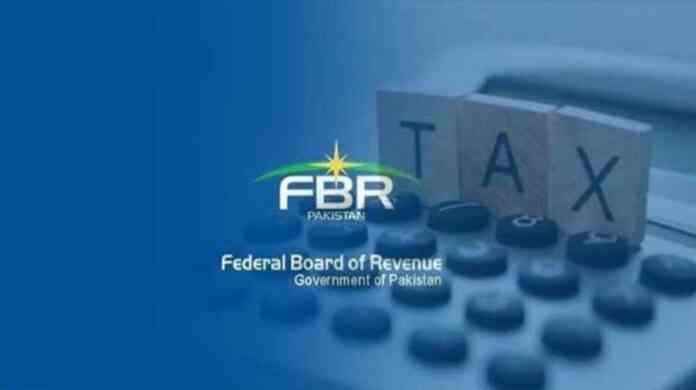Islamabad, June 10, 2025 – The Federal Board of Revenue (FBR) has announced a comprehensive set of amendments to the Sales Tax Act, 1990 under the newly proposed Finance Bill 2025.
These reforms are aimed at enhancing enforcement, expanding the tax base, and aligning the tax regime with technological advancements and modern economic realities. The Finance Bill introduces significant changes in areas such as e-commerce, tax fraud prevention, input adjustments, exemption withdrawals, and value-chain tracking.
The Finance Bill 2025 reflects the government’s strong commitment to strengthening revenue mobilization and compliance under the sales tax regime. Here are the key highlights:
1. Introduction of Cargo Tracking System and E-Bilty
To improve transparency in the transport of taxable goods, the Finance Bill incorporates definitions for the Cargo Tracking System and “e-Bilty” into the Sales Tax Act. This system will electronically monitor the movement of goods across Pakistan and generate digital transport documentation. This aims to deter smuggling, reduce fake invoicing, and ensure proper collection of sales tax.
2. Reforms in E-Commerce and Online Marketplaces
Recognizing the rapid expansion of online transactions, the Finance Bill 2025 introduces a broader definition of ‘e-commerce’ and redefines ‘online marketplace’ to include all digital sale platforms. These changes ensure that sales tax obligations are applicable to businesses operating through websites, apps, and payment gateways.
Currently, marketplaces are required to withhold 1% sales tax on local supplies made by vendors who are not active taxpayers. The Finance Bill proposes to increase this rate to 2% and extend the withholding mechanism to both digital payments (collected by banks and gateways) and Cash on Delivery (CoD) transactions (collected by couriers).
3. Combating Tax Fraud and Strengthening Enforcement
To counter tax evasion, the Finance Bill introduces several legal amendments:
• The term “abettor” has been legally defined, along with associated penalties, to target individuals aiding sales tax evasion.
• The scope of “tax fraud” has been expanded to include digital and technological manipulation.
• Prosecution procedures are now clearer—cases of sales tax fraud will be pursued through special judges, not departmental officers, ensuring impartial adjudication.
4. Broader Tax Base and Enhanced Import Valuation
To expand the sales tax net, the definition of “retail price” has been revised to include imported items under the Third Schedule. This change will help capture value addition at the retail level for imported goods and ensure that tax is levied appropriately.
5. Input Tax Adjustment Restrictions
The Finance Bill empowers FBR to impose limits on input tax adjustments, especially in cases where claims may be linked to fictitious or illegal transactions. However, affected registered persons will retain the right to file a review application, safeguarding taxpayer rights while improving control over fraudulent claims.
6. Enforcement Through Economic Documentation
To boost documentation and registration, the Bill introduces enforcement mechanisms such as:
• Freezing of bank accounts,
• Restriction on property transfers,
• Sealing of business premises,
• Appointment of receivers.
These tools will target unregistered businesses that evade sales tax obligations.
7. Hiring of Experts and Auditors
To improve the quality of audits and litigation, FBR or Commissioners will be allowed to appoint up to 2,000 experts or auditors either directly or through third-party engagements. This move will enhance the technical capacity of the sales tax enforcement apparatus.
8. Expansion of Third Schedule Items
The following imported consumer goods are proposed to be taxed at retail price under the Third Schedule:
• Pet food (dogs and cats),
• Coffee,
• Chocolates,
• Cereal bars.
This change ensures that these items, often sold at high margins, are taxed appropriately under the sales tax regime.
9. Phased Withdrawal of Exemptions
To harmonize the sales tax structure, the following changes are proposed:
• Industrial Units in FATA/PATA: Gradual imposition of sales tax, starting at 10% in 2025-26 and increasing to 16% by 2028-29.
• Photovoltaic Panels: Withdrawal of exemption to create fair competition for local manufacturers.
• Cinematographic Equipment: Removal of obsolete reduced rate.
• Motorcars under 850cc: Elimination of reduced 12.5% rate due to limited benefit to end-users.
• Vermicellies and Sheer Mall: Withdrawal of existing 10% reduced rate.
10. New Exemptions Introduced
To provide relief, the following exemptions are proposed:
• Bun and Rusk: As staple food items for low-income households, their local sale will be exempt from sales tax.
• Electricity Supply in Ex-FATA/PATA: Existing exemption is proposed to be extended till June 30, 2026.
• Medicines for Rare Diseases: Cystagon, Cysta Drops, and Trientine capsules will no longer be restricted to personal-use exemptions, easing patient access.
• PIA Aircraft Imports and Leases: To aid privatization efforts, PIA will be exempted from sales tax on aircraft imports or leases.
11. Appeals and Legal Streamlining
The Finance Bill proposes to remove the Rs. 10 million cap for appeals before Commissioners (Appeals), allowing more taxpayers access to judicial redress. It also simplifies appeal procedures before the Appellate Tribunal Inland Revenue (ATIR) and references to the High Court.
12. Condonation Time Limit
To rationalize the condonation of delays, the Finance Bill proposes a standard two-year limit, with the possibility of extensions in cases involving substantial revenue loss, pending committee review.
The Finance Bill 2025 reflects a transformative shift in the government’s approach to sales tax administration. By integrating technology, enforcing compliance, and rationalizing exemptions, the reforms seek to broaden the tax base while fostering transparency and fairness in the system. With this modernized framework, the FBR aims to enhance revenue collection and support Pakistan’s fiscal sustainability.
